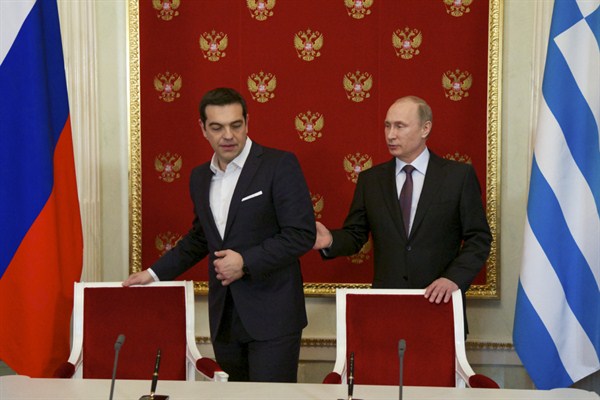This week, the United States found itself in a brief and unusual diplomatic spat with its normally quiet NATO ally, the Czech Republic. The U.S. ambassador in Prague, Andrew Schapiro, criticized Czech President Milos Zeman for saying he would attend the May 9 Victory Day parade in Moscow, which commemorates the Soviet Union’s defeat of Nazi Germany. The mainly ceremonial president’s announcement infuriated not only the U.S., but many Czechs, including Prime Minister Bohuslav Sobotka, since it came despite the European Union’s ongoing sanctions against Russia over the Ukraine crisis. Today, Zeman changed course, announcing that he would not be attending the ceremony in Moscow after all. But the controversy was far from an isolated gaffe.
Zeman is one of a number of EU leaders who have, to varying degrees, defied the consensus between Brussels and Washington that Russia must face consequences for its actions in Ukraine. With the cease-fire in Ukraine’s embattled east apparently holding, and with Russia’s economy adapting to Western sanctions and lower energy prices, Russian President Vladimir Putin is launching a diplomatic offensive with the intention to divide the EU, reaching out in particular to its newer and poorer members. The EU sanctions will expire on July 31 unless all 28 member states agree to renew them. Putin is doing everything in his power to prevent an extension.
On Wednesday, Putin hosted Greek Prime Minister Alexis Tsipras, the head of the recently elected far-left Syriza party, in Moscow. The meeting was friendly, coming just a day after the Greek and Hungarian foreign ministers met in Budapest and announced plans to sign on to Russia’s new Turkish Stream gas pipeline, and two days after Putin visited Cyprus and agreed to extend a $2.5 billion loan. Putin has said Tsipras did not ask him for economic aid, even though Greece has been engaged in tense negotiations with its creditors—the European Central Bank, the International Monetary Fund and the European Commission—over its debt obligations and could use some help. But Tsipras, like Zeman, has criticized EU sanctions on Russia and defended Putin’s moves in Ukraine, suggesting that Greece may be open to Russian economic assistance. Whether Tsipras actually wants such support or is simply using the threat of it as a negotiating tactic with the EU remains to be seen.

